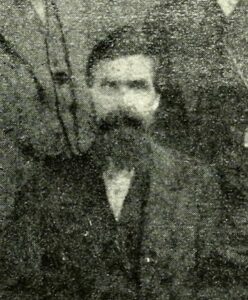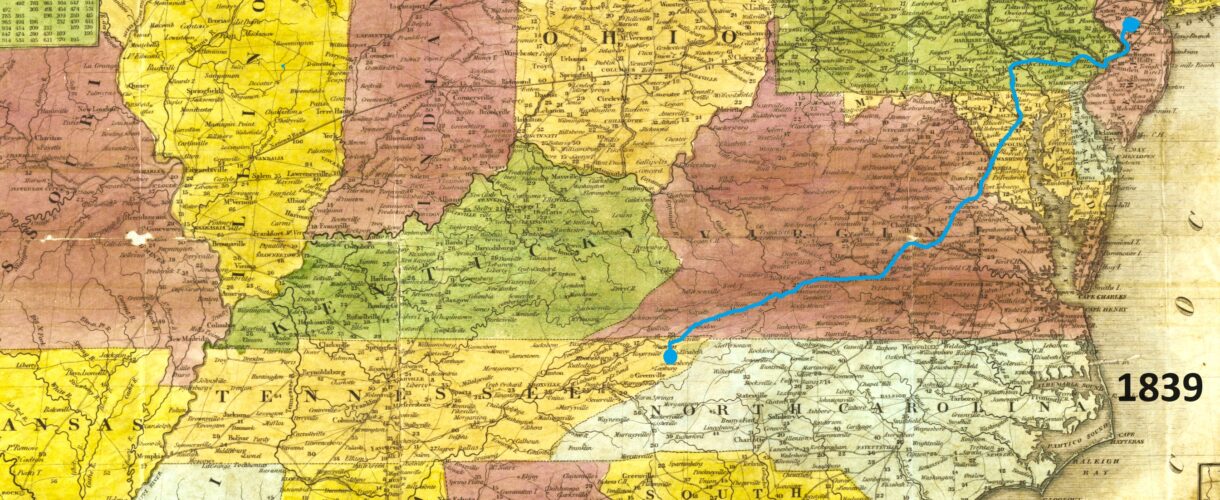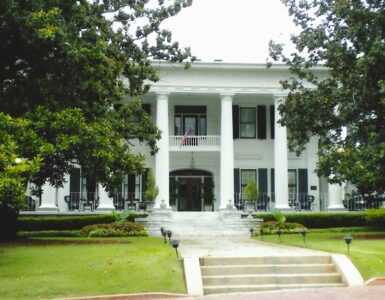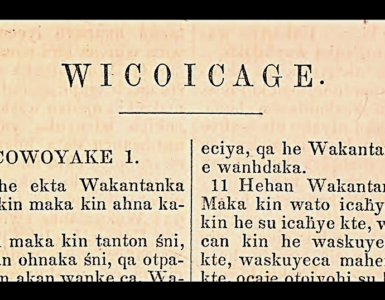 The walking distance from the home of Alfred Mathes in Washington County, Tennessee to Princeton Seminary in New Jersey is just short of six-hundred miles. If the journey was made today it might follow I-81 through the Shenandoah Valley to Lexington; I-64 on to Charlottesville; then Highway 29 through Culpepper; Highway 15 and I-66 on through the District of Columbia until I-95 is taken through Philadelphia; across the Delaware River to Trenton; and on to Princeton via Highway 206. One map website proposes that to walk the distance would take about two-hundred hours at a pace of three miles per hour. However, when young Mathes left home in the late summer of 1852 his route would have taken him through farmland, across streams, floating on rivers, over mountains, on roads and forrest trails. Young Mathes walked from Tennessee to Princeton for theological studies and when he arrived he was asked his method for travel to Princeton. Showing his sense of humor, or maybe wryly expressing frustration with his sore feet reminding him of his trek, he answered, “by private conveyance.”
The walking distance from the home of Alfred Mathes in Washington County, Tennessee to Princeton Seminary in New Jersey is just short of six-hundred miles. If the journey was made today it might follow I-81 through the Shenandoah Valley to Lexington; I-64 on to Charlottesville; then Highway 29 through Culpepper; Highway 15 and I-66 on through the District of Columbia until I-95 is taken through Philadelphia; across the Delaware River to Trenton; and on to Princeton via Highway 206. One map website proposes that to walk the distance would take about two-hundred hours at a pace of three miles per hour. However, when young Mathes left home in the late summer of 1852 his route would have taken him through farmland, across streams, floating on rivers, over mountains, on roads and forrest trails. Young Mathes walked from Tennessee to Princeton for theological studies and when he arrived he was asked his method for travel to Princeton. Showing his sense of humor, or maybe wryly expressing frustration with his sore feet reminding him of his trek, he answered, “by private conveyance.”
Alfred Harvey was born to Alexander Mathes III and Orpha Wood (Merritt) Mathes in Greenville, South Carolina, May 7, 1828. His father was originally from Tennessee of Presbyterian stock and his mother was of Huguenot descent. When he was four years old the family returned to Alexander’s homeland in Washington County, which is located just south of modern Kingsport and west of the mountains running between Tennessee and North Carolina. The Mathes family had considerable history in the community and with the local Presbyterian congregation, Old Salem Church. The congregation was founded in 1780 by Rev. Samuel Doak, a student of John Witherspoon at the College of New Jersey (Princeton). Alfred’s great grandfather, grandfather, and father, all named Alexander, were elders in Old Salem Church with their tenures totaling 102 years. Alfred’s grandfather Alexander, Sr., was a surveyor and he donated fifty acres of land to the church that was used to build a sanctuary and classical school, then in later years other buildings were added. Alfred became a communicant member of Old Salem on profession of faith in 1848.
His early studies were directed by Benjamin Bolden of Anderson Academy in Newport, Tennessee. He then attended Washington College which was located on the land his ancestor donated to Old Salem Church. The college had grown out of Martin Academy, the classical school Pastor Doak established, and it was chartered by the first Tennessee state legislature in 1796. Alfred began at Washington but then left to be tutored by his uncle, Rev. Allen H. Mathes, before returning to Washington and graduating in 1852. He taught school for a few years in Carter County, Tennessee, he also read law, but then believed he was called to the ministry. The grandson of Samuel Doak, Rev. Archibald Alexander Doak, served two non-consecutive terms as the president of Washington College between 1840 and 1857. It is likely that A. A. Doak, a Princeton seminary man, steered young Mathes to take the longer trip to Princeton instead of one of the shorter journeys to either Union Seminary in Virginia or Columbia in South Carolina, or if he had waited a couple of years he could have attended Danville Seminary in Kentucky when it opened the fall of 1854.
Once Mathes arrived in New Jersey he pursued a full course of study successfully completing the divinity curriculum in 1855. He returned to his family homeland to be licensed by the Presbytery of Holston, Old School, PCUSA, on April 28, 1855, then he was ordained an evangelist by the same presbytery, July 25, 1857. His first call was supplying the Providence and Rocky Spring churches from 1857 to 1866. He resigned the dual charge and moved south to Georgia to become stated supply for about five years at a church in Fort Gaines, Presbytery of East Alabama, Presbyterian Church in the United States (PCUS). He also opened an academy in Fort Gaines and taught while supplying the church. In 1873, he relocated south to Florida to become an evangelist in the panhandle at Freeport. By 1876, he settled in Apopka, just north of Orlando and organized the church that he served until his death caused by consumption on September 4, 1878. The diagnosis of “consumption” was sometimes a catch-all diagnosis for diseases of the lungs in general, but it also referred to one of the most fearsome diseases of his era, the red death, tuberculosis. Maybe his changes in ministry in the later years were his attempt to find a better climate for his illness as he moved further south.
Rev. Mathes was married twice. Lydia Eliza Glasgo and Alfred were married May 24, 1855, and they continued together until her death on May 8, 1865. His second spouse was the widowed Frances Elizabeth Clark who was the daughter of Rev. Stephen Pilley of the Methodist Episcopal Church. They were married in Judson, Alabama, March 14, 1867. Frances died August 16, 1873, in Florida. Two daughters and a son survived Rev. Mathes. The Tennessee boy who walked so many miles from his mountain rural home to a very different culture in New Jersey for his theological education had experienced a ministry of only fifteen years.
Barry Waugh
Notes—The unfortunately grainy portrait is snipped from The Mathews (Mathes) Family in America, by Ida Christobelle Van Deventer, 1925. Most of the information about Mathes is from his memorial in the Princeton Theological Seminary Necrological Report for the year of his death, and from Scott’s Ministerial Directory of the Presbyterian Church U. S.1861-1941, first volume of a series of four, 1942; Scott is now available for checking out on Internet Archive for one hour increments. Also used were other standard Presbyterian reference works as well as Historic Presbyterian Churches of Tennessee by Joanna Emerson and Mary Ana Van Osdell, 2006, which provides a brief history and photograph of the Old Salem Presbyterian Church. The map is Mitchell’s Map of the United States, 1839, as from the digital collection of the New York Public Library. The route of travel for Mathes was added to the map by the author and is just a guess. He surely would have taken the shortest and least inexpensive route. Washington County, Tennessee, is between the Appalachian Mountains and Kingsport, and the county seat is Jonesborough. Another alumnus of Washington College with a biography in the Presbyterians of the Past collection is Rev. James A Lyon. Also, to read about another minister on Presbyterians of the Past whose life involved some walking, see William Swan Plumer’s walk recounted in the biography of John McElhenney (Plumer’s biography is available HERE). It may seem surprising that Rev. Mathes served in Fort Gaines, Georgia, but was a member of the Synod of Alabama. It could be that since Ft. Gaines was on the Georgia and Alabama line, the synods believed the ministry of Mathes was better served by the Synod of Alabama; it is not uncommon for a congregation isolated at the edge of its presbytery or synod be allowed membership in an abuting judicatory that has more nearby churches. He may have been laboring in a church that was not in the PCUS because the General Assembly minutes for 1867 show him as a stated supply but no church is named nor statistics given.





